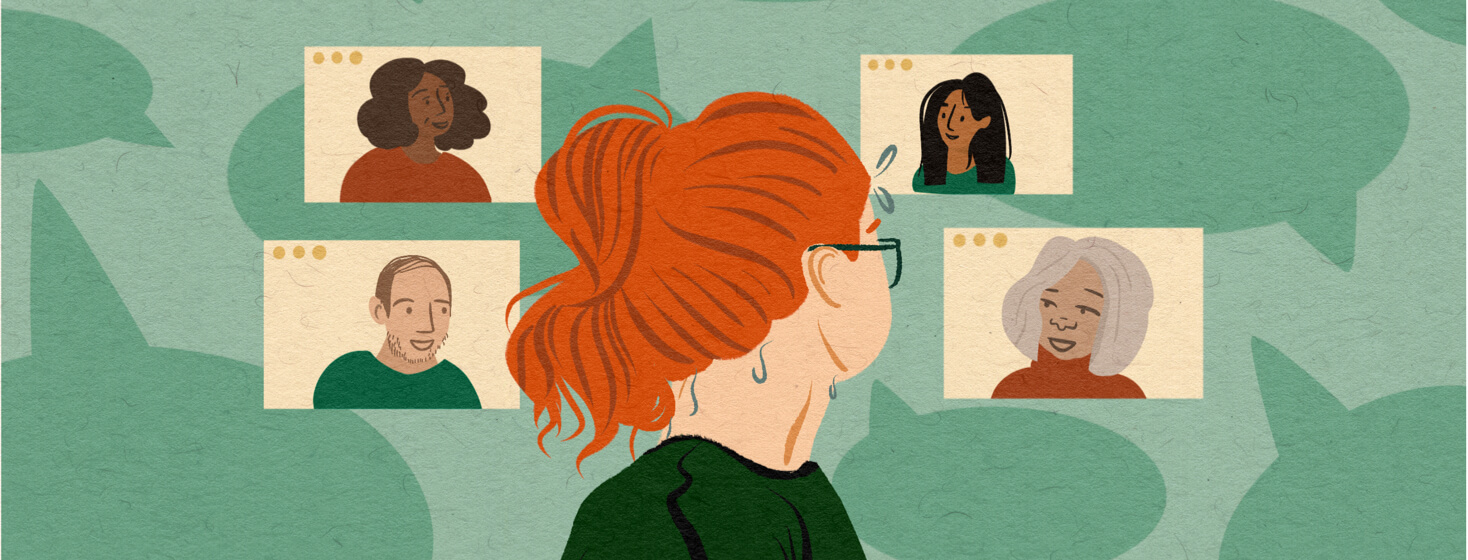You've Decided You Want to See a Therapist... Now What?
It was a cool, dreary November day. My husband and I were at my cystic fibrosis clinic and, while we didn’t know it then, we were nearing the end of what had been a very long, very sick road. Physically, I was exhausted. As well as being physically exhausted, I was emotionally drained. I was at the end of my very frayed, short rope. My nurse practitioner came in and asked how I was doing. I uttered my auto-pilot response, “I’m okay. Tired, but okay.” My husband shook his head as he looked at my nurse, and she gently asked me again, “No, Katelyn. How are you doing?”
By this point, my mental health had been struggling for some time. In addition to coping with slumping health, I was facing anxiety and depression. I knew I needed help, but I didn't know what to do. Furthermore, I felt helpless because I couldn't figure out how to explain what I needed. A few years later, I realized I'm probably not the only person who has felt this way. Throughout this article, I'll explain what mental health is and offer tips on how to find a therapist.
What is mental health?
Mental health comprises a person's state of being. It isn't just one thing. For example, mental health includes our emotional, psychological, and social well-being. Additionally, mental health influences our day-to-day lives. Our mental health can impact how we think and process information. As well as that, mental health can affect how we react in a situation. For instance, how we react when we are under stress or are experiencing anxiety.1
The anxiety that I experienced at that doctor appointment is not that unusual. Depression and anxiety are common among people who live with chronic illnesses. Approximately, one-third of people diagnosed with a serious, life-changing, chronic illness or disease will experience symptoms of depression.2
Over the past 20 years, more people have begun seeking help.3 Additionally, more information is now available about mental health. With that in mind, some people may choose to seek out mental health care in the form of therapy. Choosing to seek out therapy is a big decision and can be overwhelming. After letting your care team know what you need so they can offer support, a common follow-up question is, “How do I find a therapist?”
How do I find a therapist?
Finding a therapist can feel like a big task. Often, your care team will be able to point you to a therapist. If your team doesn't have someone, there are some things you can do to find a therapist on your own. For example, here are some tips to help you find a therapist:4
- Consult your provider directory. This directory is helpful if you want to pay for therapy through your insurance plan. Not only will the directory let you know who is in your network, but it will let you know how much out-of-network therapists would cost.
- Ask someone you trust. A friend may be able to suggest a therapist for you to see. Nonetheless, it is important to remember that your needs and goals will probably be different from your friend.
- Use a good online database. For example, a few online search tools are the American Psychological Association, American Association for Marriage and Family Therapists, and Association of LGBTQ+ Psychiatrists.
- Explore local resources. Your community is likely to have resources to help you. For example, if you want a therapist who shares your faith beliefs, try reaching out to your local church, mosque, or synagogue. In addition to the support they offer, they will likely have a list of therapists who share your faith.
- Reach out to organizations that address what you are concerned about. Making sure your therapist understands and is up to date about your specific mental health needs is vital.
- Think about your goals ahead of time. When you and your therapist work together toward a common goal, the outlook of therapy is better.
- Try an online therapy app. For example, BetterHelp and TalkSpace are both examples of an online therapy app.
- Ask questions about the things that matter to you. Being nervous is normal, but to make sure you don't forget to ask what is important to you. Before you see your therapist for the first time, make a list of questions to ask. That way you can make a wise decision about whether or not they can help you.
- Pay close attention to your own responses. Therapy can be hard and there will be uncomfortable moments. If you ever feel uncomfortable for another reason or feel a lack of trust, you may need to look for a new therapist.
Starting therapy is a big decision and can be overwhelming. Nevertheless, having the knowledge of how to get the mental healthcare you need is empowering. Living with a chronic illness presents unique situations that may impact your mental health. Subsequently, having a therapist and mental health advocate on your team can be a great tool to have in your healthcare kit.
Have you or your loved one with cystic fibrosis sought out therapy to help cope? Share your experience in the comments below.

Join the conversation